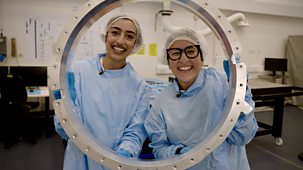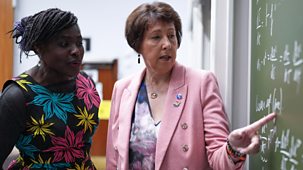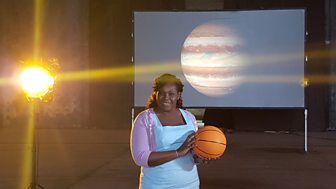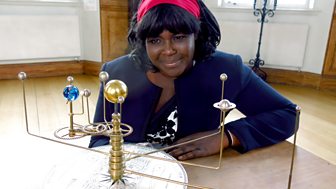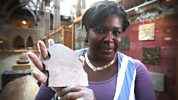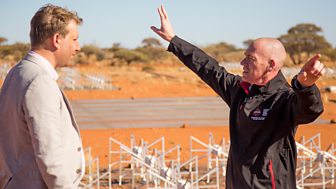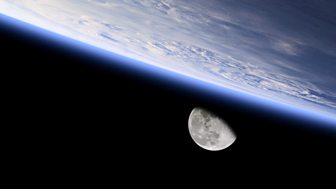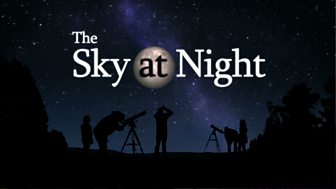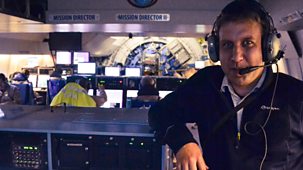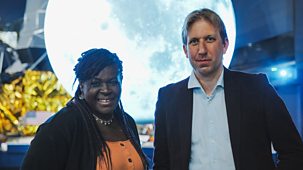
Destination: Moon
2022 marks the fiftieth year since an astronaut last stepped on the moon’s surface. We look back at the legacy of the Apollo programme and forward to the future of lunar exploration. Maggie and Chris visit the Science Museum in London, where Maggie discovers from space curator Doug Millard that one of the museum’s star attractions – Apollo 10’s command module – nearly did not bring back its entire crew.\n\nChris discovers that Nasa’s latest assault on the moon, the ‘Artemis’ programme, plans to set up an orbiting moon station and a shuttle from it to a permanent base on the moon’s surface, and learns from Nasa’s Dana Hurley that much of the technology needed for such a mission has yet to be invented. Nonetheless, the first dry run for the SLS rocket and the Orion command capsule and moon landing system will go ahead without a crew and is planned later this year. On that first mission to orbit the moon, 13 tiny ‘cubesats’ will be released into the moon’s orbit to discover more about the lunar surface in anticipation of greater future human activity on the moon. These low-cost satellites are providing the next generation of space scientists and engineers an opportunity to work on spacecraft for the first time.\n\nMaggie talks to Craig Hardgrove, an associate professor from Arizona State University, who leads a relatively inexperienced team in building LunaH-Map. The pint-sized craft will scan the lunar surface for evidence of hydrogen, and therefore water, which will be enormously useful for future missions and moon bases to provide sustenance and fuel – once the technology is in place to deliver it.\n\nPete Lawrence is on hand for tips on how best to observe the moon from Earth during the upcoming lunar eclipse on the 16 May, and Chris learns from Professor Sara Russell of the Natural History Museum that the Apollo missions allowed science to identify moon asteroids here on Earth, and that future missions retrieving more moon rock might tell us even more about how the Earth formed and how life emerged.\n
Source: BBC 4
Most recent episodes of The Sky at Night
The Sky At Night
Ancestral Skies
This month, The Sky at Night teams up with BBC Ideas to discover the secrets of archaeology and astronomy and to reflect on our ancestral skies. \n\nThroughout history and acros ...
14-11-2024
BBC 4
The Sky At Night
Question Time Special
Get ready for The Sky at Night’s annual Question Time Special, where viewers get the opportunity to ask the questions they have always wanted answered about our universe.\ ...
08-10-2024
BBC 4
The Sky At Night
2075: Our Place In Space
The Sky at Night is embarking on a journey into the future as we explore how space will revolutionise life on Earth over the next 50 years. As humanity's reach extends into the ...
11-09-2024
BBC 4
The Sky At Night
Nicky, Nasa And The Next Frontier
In this Sky at Night special, the team talk to Dr Nicola Fox, NASA’s head of science, whose life began in the UK.\n\nPresenter Chris Lintott chats to Nicky about her early ...
15-08-2024
BBC 4
The Sky At Night
Webb Telescope: The Story So Far
In July 2022, the James Webb Space Telescope released its first images. They were visually stunning, and it was clear they provided more detail of stars, galaxies and planets th ...
11-07-2024
BBC 4
The Sky At Night
Cosmic Ghosts
This month, The Sky at Night has a spooky twist. Across the universe, there are hidden objects that we can’t see, but astronomers and scientists still believe they’r ...
13-06-2024
BBC 4
The Sky At Night
Hiding In Starlight
Total solar eclipses, like the one seen last month in North America, allow us to see details of the Sun that can’t be seen at any other time. So, this month, The Sky at Ni ...
16-05-2024
BBC 4
The Sky At Night
Space Rock Return
The Sky at Night is back for a brand new series, and this month it is delving into Nasa’s OSIRIS-REx mission, which last year brought back a sample from the near-Earth ast ...
11-04-2024
BBC 4
The Sky At Night
The Sky At Night Meets The Infinite Monkey Cage
In this special episode to mark the end of another season of The Sky at Night, we team up with Radio 4’s The Infinite Monkey Cage to talk all things amateur astronomy. Joi ...
16-11-2023
BBC 4
Most popular episodes of The Sky at Night
The Sky At Night
Impacts
The team looks at the cosmic impacts which have shaped the universe around us, from asteroids crashing into the surface of the moon to galaxies colliding with each other.
15-06-2014
BBC 4
The Sky At Night
Outback Astronomy
In February 2018, news broke that astronomers had seen the cosmic dawn - the moment when stars first formed, flooding the universe with light. What's remarkable is that this inc ...
12-07-2018
BBC 4
The Sky At Night
Webb Telescope: The Story So Far
In July 2022, the James Webb Space Telescope released its first images. They were visually stunning, and it was clear they provided more detail of stars, galaxies and planets th ...
11-07-2024
BBC 4
The Sky At Night
Question Time
A special ‘Question Time’ edition of the programme, recorded at the Civic Theatre, Chelmsford, as part of the British Science Association’s annual science fest ...
22-09-2021
BBC 4
The Sky At Night
Telescope On A Plane!
Telescope on a Plane!\n\nIn this special programme, the Sky at Night takes to the air on board the largest airborne observatory in the world – a specially modified jumbo j ...
09-12-2018
BBC 4
The Sky At Night
The Moon, The Mission And The Bbc
To celebrate the 50th anniversary of the Apollo mission to put a man on the moon, The Sky at Night looks back through the archives to tell the story of how the BBC reported the ...
19-09-2021
BBC 4




